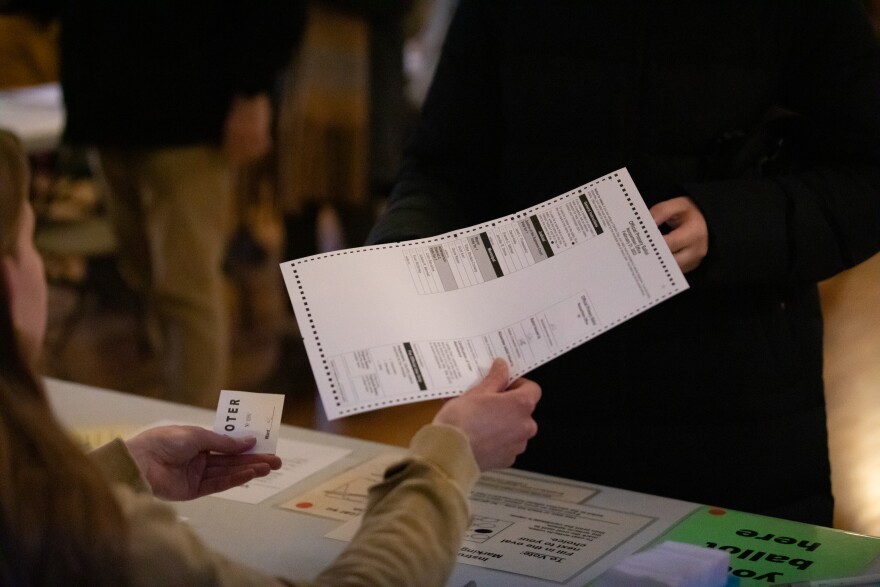Nearly 4.6 million people in the U.S. were barred from voting due to a felony conviction in 2022. That includes more than 65,000 people in Wisconsin, according to The Sentencing Project, an advocacy and research group.
Neighboring Michigan, Minnesota and Illinois are among 22 states that automatically restore the voting rights of people convicted of a felony upon their release from prison.
That’s not the case in Wisconsin, where those convicted of treason, bribery or a felony must first serve their full sentences or be pardoned.
Wisconsin automatically restores voting rights once a person is “off paper,” meaning they’ve finished probation, parole or extended supervision — a process that can last years. That person must re-register before voting.
It is a felony to vote while under correctional supervision for a felony. After each election, the Wisconsin Elections Commission checks a list of people who voted and a list of those who are prohibited from voting while under supervision.
A Wisconsin Watch investigation examining illegal voting found that in the last decade, more than half of election-related crimes involved people who voted or registered to vote while still “on paper.”
Some of those cases stemmed from confusion, which is common even among probation officers, Wisconsin Watch found.
Although state law requires the Department of Corrections to inform formerly incarcerated people in writing when their voting rights are restored, activists say some people remain unaware.
“We most often find somebody who has completed their sentence, but they'll say, ‘Well, I committed a felony, so I can't vote.’ And they don't realize that they can now vote because their sentence is completed,” said Marianne Oleson, executive assistant of Ex-incarcerated People Organizing of Wisconsin, which advocates to end mass incarceration.
If you’re formerly or currently incarcerated and thinking about voting, here’s what you need to know.
Who should I ask?
Ask before you register. You can contact your parole or probation officer, Department of Corrections or the Wisconsin Elections Commission to see if you’re eligible to vote.
Can I vote if I was convicted of a misdemeanor?
Yes. You can exercise your right while you’re in jail or “on paper” for a misdemeanor, the ACLU of Wisconsin advises, as long as the misdemeanor is not related to treason or bribery. If you’re in jail and eligible to vote, you can request an absentee ballot.
Can I vote if I was charged, but not yet convicted of a felony?
Yes. You lose your right to vote only once you are convicted of a felony and then only until your felony sentence is completely served.
If I can’t vote, what else can I do to make a difference?
Educate your friends and family about policies and issues that affect you, said Oleson, who cannot vote until 2040.
“We call it voting with conviction,” Oleson said. “Make sure you're helping them understand what they need to do to get registered and vote.”
The nonprofit Wisconsin Watch (www.WisconsinWatch.org) collaborates with Milwaukee Neighborhood News Service, WPR, PBS Wisconsin, other news media and the University of Wisconsin-Madison School of Journalism and Mass Communication. All works created, published, posted or disseminated by Wisconsin Watch do not necessarily reflect the views or opinions of UW-Madison or any of its affiliates.
This article first appeared on Wisconsin Watch and is republished here under a Creative Commons license.![]()





